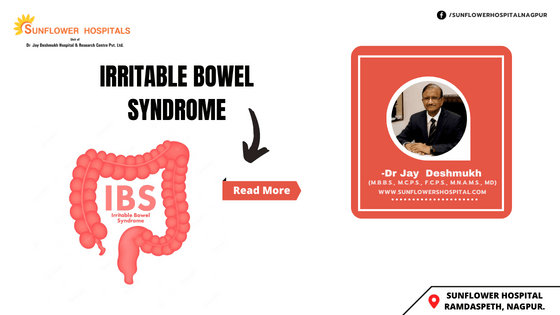What are the main symptoms of IBS?
Most patients have their first symptom before age 95 years. Women are diagnosed two times as often as men and more so with severe symptoms. Pain in the abdomen is a major key to diagnosis, associated with a change in bowel habits. Painless diarrhoea or constipation does not Ain the criterion of IBS.
What is the characteristic of abdominal pain in IBS?
It is variable in intensity and location. It is episodic and cramp-like. Weight loss and sleep deprivation due to pain are rare. Pain is increased by emotional stress and improved by the passage of stools and flatus. Females report worsening symptoms during and before menstrual periods. Pain is highly variable and can be reported from any part of the abdomen.
What about changes in bowel habits?
Constipation alternating with diarrhoea is a common presentation. It may become intractable even to laxative use. Stools are hard and of narrow calibre. Many have a sense of incomplete evacuation. Many have weeks of constipation followed by diarrhoea. The volume of stools is less than 200 ml. Diarrhoea at night does not occur in IBS. Bleeding does not occur unless piles are present and weight loss does not occur. Bowel pattern decides the type of IBS. It can be IBS Diarrhoea predominant IBS-D, IBS Constipation pre-dominant IBS-C and IBS-M.
What about gas and flatulence?
Many IBS patients complain about gas and flatulence. Many report abdominal distension and bloating. Some may have visible distension with an increase in abdominal girth.
What about upper gastrointestinal symptoms?
Many IBS individuals complain about dyspepsia, heartburn, nausea, and vomiting. The prevalence of IBS is higher in those with dyspepsia. Functional dyspepsia and IBS are two manifestations of a single extensive digestive system disorder.
How to diagnose IBS?
The diagnosis relies on classical clinical features and the elimination of other digestive disorders. Hence, there is no specific diagnostic test. Routine blood tests, check for diabetes, kidney and liver functions and stool examination may be carried out to rule out other diseases. Some upper and lower, scopes are used to assess the gastrointestinal. This is a very common bowel disorder that is known to affect almost 20% of adolescents and adults worldwide. This is a condition associated with abdominal pain and discomfort. Constipation or diarrhoea without detectable structural changes in the digestive system is the key to diagnosis tract. The appearance of symptoms in old age, progressive course from the time of onset, persistent diarrhoea after a 48-hour fast, presence of loose stools at night, weight loss and oily stools make a diagnosis of IBS unlikely. They are many drugs and medical conditions that cause diarrhoea and constipation, hence proper information about the individual’s background is essential.
What is the treatment of IBS?
Proper counselling and dietary modifications are required. A meticulous history may suggest coffee, disaccharides, legumes, and cabbage that may aggravate symptoms. Excessive use of
artificial sweeteners and fructose may cause aggravation of symptoms & A diet low in Formats is helpful. These are fermentable Oligosaccharides, disaccharides, monosaccharides, and polyols. Some of these are apple, mango, pear, watermelon, peach, apricot, avocado, honey, milk, yoghurt, ice cream, custard, wheat, rye, barley and many more. Fibre supplementation is beneficial in selected cases. Stool bulking agents, peppermint oil, and antispasmodics like dicyclomine given before meals are helpful.
How is diarrhoea managed in IBS- D individuals?
Loper amide in small doses is safe even on a long-term basis. Cholestyramine resin can help in selected cases. Migraine which is an antidepressant is helpful in IBS-D cases.
How about flatulence? Individuals are advised to eat slowly and avoid gums or carbonated beverages. Certain food items may cause flatulence. A dietary exclusion trial may be important. A low FODMAP diet is helpful to reduce gas and bloating. Pancreatic enzymes may reduce bloating or gas formation after high-fat ingestion.
What about probiotics, probiotics and antibiotics in IBS?
Rifaximin has shown to be beneficial to reduce most symptoms, though more data is forthcoming. Prebiotics has not been found to be useful. Probiotics have been found to be useful in relieving pain and bloating. Treatment of IBS is challenging. Treatment involves education, reassurance, and dietary lifestyle changes. For IBS patients with more gas and bloating, a low FOD-MAP diet is necessary. Some may be helped by probiotics and ribavirin. Some may require treatment for their psychological disorders. The first line of treatment seems to be a low FODMAP diet.
Author: Dr Jay Deshmukh
Dr Jay Deshmukh is Chief Physician and Director, Sunflower Hospital, Nagpur Honorary Physician to Honorable Governor of Maharashtra and PondicherryCentral. Dr Jay Deshmukh is an M.B.B.S., M.C.P.S., F.C.P.S., M.N.A.M.S., MD From Internal Medicine – Bombay and New Delhi.


